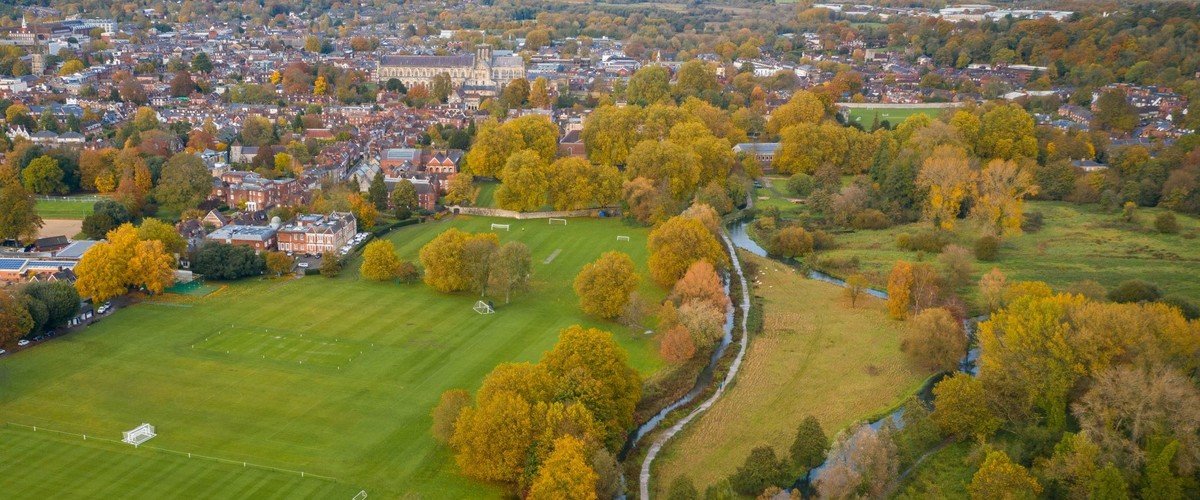

Commemorating Keats 200
Two hundred years ago, on 23 February, the poet John Keats died in Rome of tuberculosis. Keats lived in Winchester for a few weeks in the late summer and early autumn of 1819. His time here was brief but significant in the history of his writing life as he composed arguably his greatest poem, ‘To Autumn’, after a walk down past the College to St. Cross.
When I joined the College in the autumn of 2019, the bi-centenary of Keats’s stay in Winchester was marked by an exhibition, lectures and symposium on Keats’s work. On the anniversary of the supposed date of the poem’s composition, I retraced Keats’s steps down to St Cross, picturing him on the same walk, in the same fine weather, 200 years earlier.
On that day, he was 23 years old and in love. In the previous six months, he had written a handful of the finest poems in the language and was about to write another. Eighteen months later, though, he was dead: the tuberculosis bacilli that would kill him were already incubating in his lungs as he walked alongside the Itchen. His brother Tom had died of the disease nine months earlier; it had also killed his mother.
Writing this during the current pandemic, it is tempting to ask what Keats has to say—if anything—about living under the shadow of a deadly respiratory disease. Reading his letters through again, I recognise some of the anxiety of the past year, as he obsesses over coughs, fevers and sore throats, worrying over whether they were symptoms of anything more serious. With his medical training, Keats would have known that they were and that, unlike the nightingale, he would never sing in ‘full-throated ease’.
Suffering was never passive for Keats though. Instead of a vale of tears, he understood it as something that forged in his words our ‘Intelligence’ into a ‘soul’. In one letter, he imagines a rose in full bloom acquiring simultaneously an awareness of its own beauty and the knowledge that it will be destroyed by a cold wind that it cannot escape.
Youth, health and happiness are all fleeting, Keats suggests, but that transience makes them all the more precious. The greatest art—such as Keats’s odes—holds this awareness in the balance. As I walked along the Itchen eighteen months ago, I caught sight of a kingfisher, a bird I’ve always loved but only ever seen before in glimpses. This time, though, I watched it unimpeded flying low over the river for several seconds, every feather picked out in the pristine light, before it veered away and disappeared into the bank. The brevity of that moment enriched its beauty: it was enough to take the breath away.

 Head back to stories
Head back to stories